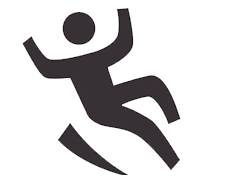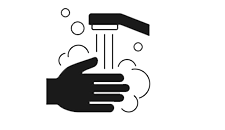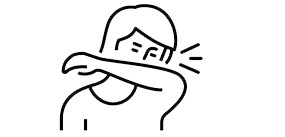SpeakUpTM

Everyone at Stony Brook University Hospital has a role in making healthcare safe. As a patient, you can make your care safer by being an active, involved and informed member of your care team. The SpeakUp program, sponsored by The Joint Commission, emphasizes that patients should be involved in their own care.
Research shows that patients who take part in decisions about their own care are more likely to get better faster. Click here for more information and to see the SpeakUp brochure, which details specific things that you can do as a patient to help prevent errors and stay safe.
Rapid Response Team

The Rapid Response Team is a group of specially trained individuals that respond at the patient's bedside when the patient's medical condition appears to be worsening with the goal of providing high-quality care to prevent further deterioration and to avoid a medical emergency. The bedside nurse is specially trained to recognize signs of distress, but we realize that a patient or a family member may be the first to witness symptoms.
If you observe any sudden medical changes in the patient, you should immediately contact the bedside nurse or other members of the healthcare team, and if needed, you may contact the Rapid Response Team directly by dialing 321 on a hospital or patient bedside phone, or (631) 444-1077 from a cell phone. The team will respond promptly to the patient's bedside.
For more information, please ask a member of our staff and review our Rapid Response Team brochure.
Falls Prevention

Call don't fall is our motto here at Stony Brook University Hospital. Ask for help before getting up, as part of our Fall Precaution Prevention Program. Our goal is to ensure your safety while you are here at Stony Brook.
Pain Management

Pain relief is an important part of your healthcare, your recovery and your comfort. Managing pain can help you heal faster. Less pain will help you regain your strength more quickly and allow you to resume normal function sooner. Pain Management is a way to recognize and treat discomfort that comes with diagnosis, disease or treatment. Our healthcare team will work closely with you to achieve a good level of comfort for you.
Here are some things you can do to help manage your pain while you are in the hospital.
- Ask the team about level of pain or discomfort that you may experience
- It is easier to prevent serious pain than to lessen it after it has taken hold
- Ask about a plan for pain control
- Request pain relief medicine when the discomfort is more than your acceptable level of pain
- If you know your pain will worsen when beginning activity or breathing exercises, take pain medication first
- Discuss with your nurse or healthcare provider any concerns you may have about the use of pain medications
Here are some other things to do to relieve pain that do not involve pain medicine.
- Change your position often
- Apply ice/heat as prescribed by your doctor
- Use relaxation techniques, such as abdominal breathing and progressive muscle tension/ relaxation; ask your nurse if you need help doing these
- Distraction techniques such as music, television, relaxation CDs, counting backwards, hand crafts, crossword puzzles, Sudoku, exercises and socializing via the phone and internet
- Alternate activities with periods of rest
- Spiritual/ pastoral care
- Counseling
- Tune into Channel 84 MedSerenity for the free relaxation television channel
Please alert the staff of pain that is not relieved by the above techniques, if you are having breathing problems or other reactions that may be medicine related. In order to stay on top of the pain, the staff will often ask what your level of pain is, even when you are resting to make sure we know your response to the pain medicines we have given you. The staff will also evaluate that you are not becoming too sleepy from the pain medication in order to keep you safe.
Pain Scale
Pain is assessed using an age and population specific appropriate tool. An example is the pain scale. Please use a number from the scale to help describe your pain.

Patient Pain Bill of Rights
As a patient at Stony Brook University Hospital, you can expect:
- To receive information regarding pain and the management of pain.
- A concerned staff committed to pain prevention.
- Dedicated healthcare professionals who respond quickly to reports of pain.
- State-of-the-art pain management
- Your expression of pain to be accepted and managed accordingly. You can request a lower dose, less invasive medication or avoid taking opioids and use alternative non-opioid medications.
Medication Safety

Things You Can Do to Ensure Medication Safety
- Share with your healthcare provider a list of all your current medicines, vitamins, herbs and supplements.
- Know what medications you are receiving in the hospital and why you are receiving them.
- Ask your healthcare provider about new medicines: how it will help, possible side effects, the brand and generic names.
- Ask for written information about the medicine.
- Tell your healthcare provider if you don’t feel well after receiving a medicine. If you think you are having a reaction or experiencing side effects, ask for help immediately.
- Remind your healthcare provider about allergies that you have or negative reactions you have had to other medicines.
- Don’t be afraid to tell your healthcare provider if you think you are about to get the wrong medicine.
- Be aware that your healthcare providers will be checking your wristband and asking your name and date of birth prior to procedures or administering medications.
- Before you leave the hospital, make sure that you understand all of the instructions for the medicines you will need to keep taking and the medicines you will no longer need to take. Ask any questions you may have about any of your medications. Notify your primary physician of changes in your medications.
- Read the label on your prescription medicine. Make sure that it has your name on it and the correct medicine name and dosage. Some medicines have similar names and can be easily confused with each other. Make sure that your medication looks the same as it normally does. If something doesn’t match, ask your healthcare provider immediately.
- Take your medicine as prescribed, and do not stop taking it without first speaking with your healthcare provider.
- If you receive a prescription for antibiotics, use all the medication as prescribed until it is finished. Never use antibiotics prescribed for someone else or give someone else your medications.
- If you are discharged home with opioid pain medicine, it should be stored at room temperature in a locked secure location. If you no longer need the medication you can locate a “take-back” center near you at a local pharmacy or police station.
Hand Hygiene

We can’t say it enough. Hand washing is one of the best ways to prevent the spread of infection. This is particularly important during hospitalization, when patients are at their most vulnerable and may have low immunity.
For your safety and the safety of your visitors, we request that you help spread the word to perform hand hygiene before and after: every patient contact; entering a patient’s room/area; eating; and using the bathroom.
This means either using antibacterial foam or washing hands thoroughly at the sink.
Here’s how the Centers for Disease Control and Prevention (CDC) and the World Health Organization (WHO) recommend you wash your hands. Lather your hands with soap and water for as long as it takes to sing “Happy Birthday” twice. Use a paper towel when turning off the water. Then dry hands thoroughly.
Transmission Based Precautions

In the hospital, certain infections may require isolation to keep them from spreading to other patients. If this is the case with you, do not be alarmed. It is a standard safety procedure that involves taking precautions. This may include changing your room and limiting visitors.
During your hospitalization, one or more of your laboratory cultures may show that you are carrying or are infected with bacteria or an organism that is resistant to usual antibiotics or may easily be shared from one person to another. When this occurs, you will be placed on transmission based disease specific precautions. These protective measures are required for all healthcare workers to prevent or limit the spread to other patients.
Your room may be changed. You may also be placed on transmission based precautions at each of your subsequent admissions until it is proven that you are not carrying or infected with the identified bacteria. Your family members and visitors do not have to follow special precautions unless instructed to do so by a healthcare provider.
Before entering the room, they should ask your nurse for specific instructions. They should wash their hands with soap and water or foam hand sanitizer when entering and leaving the room, and should not go into other patient rooms and common areas in the unit hospital. While in the room, if they need to sneeze or cough, they should do so into their elbow, not their hand. If they are using a tissue, they should discard it and wash hands. Family members and visitors should take as few personal items as possible into the room and store them away from you. They should not touch items used for your care, including medical devices, tubes or dressings. The doctor, nurse and the infection control practitioner assigned to your area can provide you with specific and additional information regarding the isolation.
For additional information or to speak with one of the practitioners, call the Healthcare Epidemiology Department at (631) 444-7430, or 4-7430 from a hospital phone, Monday through Friday, 8 am to 4:30 pm.
Our Promise To You
At Stony Brook University Hospital, we promise that we will:
- Wash our hands before seeing you.
- Check your name, date of birth, identification band and chart/requisition before giving any medicine, performing a procedure, drawing blood or transporting you.
- Call you by your preferred name.
- Listen to your thoughts, questions and concerns.
- Ask you to become our partner in your healthcare.
- Ask you or a caregiver for a complete list of medications and nutritional supplements that you are taking.
- Thoroughly explain to you or a caregiver the care and medications you will receive.
- Make sure that you or your caregiver understand the risks and benefits of all procedures or surgeries you are going to have.
- Stop any procedure at the request of you or a caregiver.
- Ask for your feedback and concerns.
- Support, respect and leave you with a positive lasting impression.

